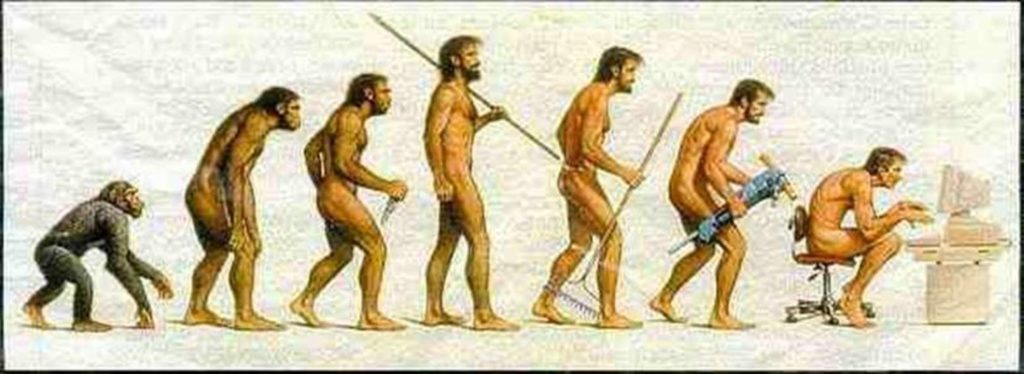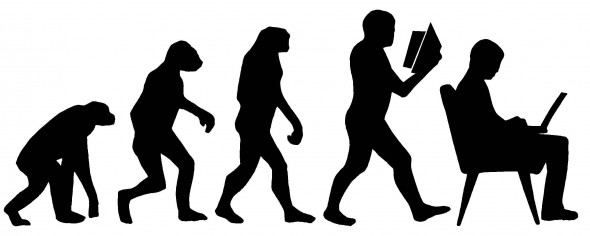When we make speculations and prophecies about the future of human civilization, we tend to commit a grave error. The fundamental basis of most of our prophecies is flawed. We often imagine the future as a continuation of our civilization. Little do we realize that human civilizations throughout history have fallen and new ones have risen on the ashes of the old.
The present human civilization based on the humanist dogma is perhaps the greatest in the history of mankind. The pan-globe feature and the homogeneity of this civilization is a first in history. In the past, owing to obvious technical difficulties, civilizations were restricted to a geographical region. Seldom did civilizations expand across continental borders. Things are different now and the technological advancement has made it possible for ideas and people to move across continents to give rise to an increasingly homogenous civilization. The process is not complete yet. Different countries are in different phases of integration into the global civilization but soon enough we will be there. The world in the future will have a single culture, bounded by a single language. Air travel, Internet and subsequent ease of flow of information have expedited this process.
This brings us to the question, what next?

We have been conditioned to believe that scientific advancement is a continuous process and that our future will be significantly more advanced than now. We believe that technological advancement is linear with time. Perhaps the Egyptians who built the pyramid thought the same. When asked to prophesize about the future, more often than not people talk of time travel, space travel, teleporting and other hi-fi science fiction stuffs. However, a look into that past would present us a better insight. The Egyptians build the Pyramids over 5000 years ago. The Pyramids are proof of their technological prowess and management capabilities. To think that humans possessed such technological expertise 5000 years ago is baffling. But with the demise of their civilization, all the scientific know-how too perished. Who would have thought that thousands of years after building the pyramid (a technological marvel and an epitome of human endeavour), humanity would slide into a dark age (medieval age) where essentially no substantial progress occurred.
We need to understand that a stable and strong social system with a flourishing economy, a supportive value system, and a population with a scientific temper is absolutely necessary conditions for science to make progress. There’s a reason why the degenerative Huns didn’t discover the sea route to India, the law of gravity was not formulated by the Vikings and the steam engine was not invented in the caves of the early hunter-gatherers. A long period of peace and prosperity is a fertile breeding ground for scientific discoveries. Therefore the onus of technological progress is not just on the scientists and the engineers but on the society as a whole. Even today we see some countries miles ahead of others in terms of technological prowess, not because they have better scientists but because they have a better social structure and a system in place that is conducive to the scientific enterprise.
We have seen in history that all civilizations at some point in time hit their peak and then slide down the inevitable slope of decline. The Egyptians, the Mayans, Harrapans, Romans, Greeks, are just a few prominent examples that declined into oblivion after having flourished for hundreds and some even thousands of years.
The present global civilization can be argued to have started in the second half of the 2nd millennium with the genesis of humanist dogma that puts human free will as the highest authority of all, downplaying the role of God. This idea of human centricity replaced religion as the source of all meaning. We no longer look to the heavens for meaning to life. Our laws are not based on biblical verses but are built around the idea of free choice and the protection of human rights. Individual rights triumph religious dogmas any day. Events like the American war of independence and the French revolution had a great role to play in the genesis and propagation of this new ideology. Since then it has constantly been disseminated across the world. Of course, the process of humanization of our social dogma is not yet complete and there are societies that still rely on the old ways. However, it is only a matter of time before we have a world with a homogenous social ideology glued together by a common belief system. Once the process is complete, different countries will then be mere components of the larger, overarching civilization. Thus the inevitable decline of civilization would mean the decline of all its components.
It is a very difficult quest to determine at what exact stage of civilization we are at presently. The breakneck speed at which we are making scientific progress is unprecedented. We could well be nearing the peak, might have already passed it or we could be far away from it. At this point, we can only vaguely speculate. However, we know for sure that we will eventually hit the decline. The harbinger of our demise could be anything; a global economic crisis, a nuclear war, climate change-induced natural disaster, gradual deterioration of social values, subjugation by Artificial Intelligence, externalities like an asteroid or perhaps a combination of any of these factors. Everything that rises must fall.
Once this great civilization collapses, there will be a slump in scientific activities for ages. The human race will hit a pause button. A degenerate society following the decline will lack the necessary social system to support scientific works. It will be a long time before humans build a new civilization built upon a new belief system. Resting on the giant shoulders of the past civilizational knowledge, the new civilization will carry the mantle of humanity into the future, as we did from the past civilizations. Our journey from the internet to time travel will not be a single uninterrupted one, rather it will be spread across civilizations.
Writes: Pritam Subba



Leave a comment